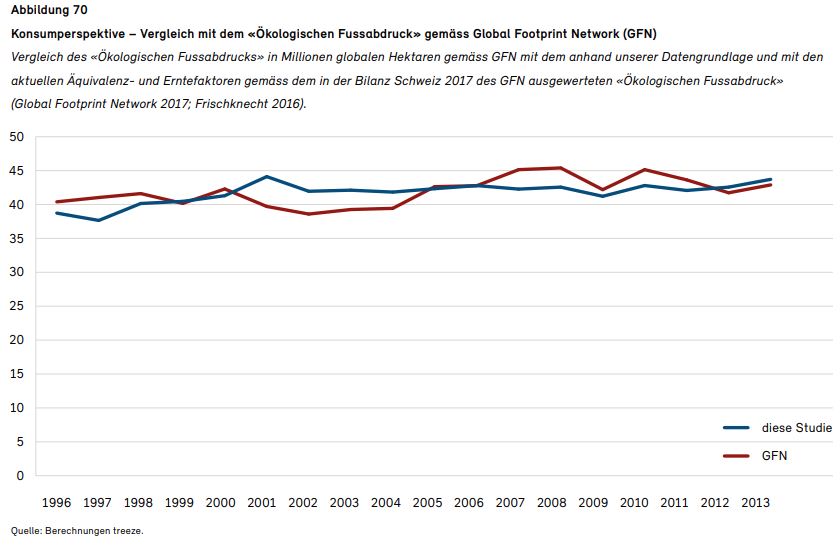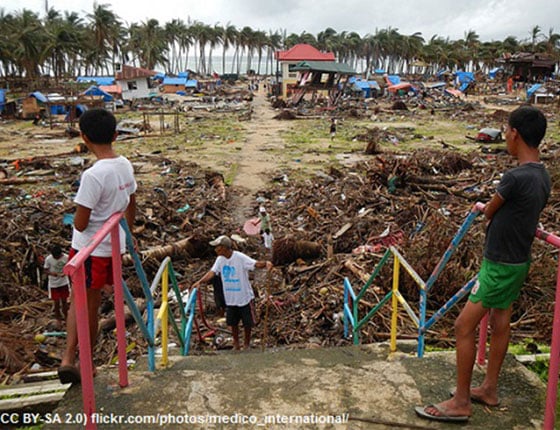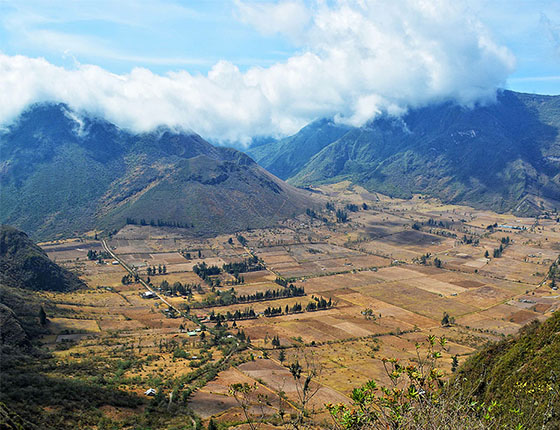Updated May 2022
In December 2006, Switzerland became the first country to work with Global Footprint Network to examine and understand its Ecological Footprint and biocapacity results. Since then, more than a dozen other countries have followed suit. The Swiss government published the initial review in a report titled Switzerland’s Ecological Footprint – A Contribution to the Sustainability Debate. The report and its technical background study were written by INFRAS, a leading Swiss policy research institute., By comparing the international data sources used by Global Footprint Network to the statistics used by the Swiss Federal Statistical Office, they concluded that the data sets were largely consistent. A second review in 2018 reconfirmed Global Footprint Network’s results with a very small margin of difference (shown in Figure 70 on page 87 of the technical report).

The Federal Office of Spatial Development and the Statistical Office used the Ecological Footprint in the Swiss government’s “Sustainable Development Report 2012” launched at Rio+20 (page 54). The Ecological Footprint also went on to become an official indicator in Switzerland’s sustainable development monitoring system, and since 2008, it has been published annually by the Swiss Federal Statistical Office. They maintain a webpage with key statistics on the Swiss Footprint and recognize that “almost three planet Earths would be needed if everyone lived like the Swiss population”. The Swiss Federal Office for the Environment also maintains a webpage about Switzerland’s Ecological Footprint results.
In 2014, BakBasel and Global Footprint Network were invited by the Swiss government to explore The Significance of Global Resource Availability to Swiss Competitiveness, which was presented in a report of the same name and is available in English (3 MB), German (3 MB) and French (3 MB). It was the focus of the Swiss Sustainable Development Dialogues in 2014 (with presentations available in French and German).
In the fall 2016, Switzerland made history as the first country to vote on whether to implement a green economy into its constitution, with the goal of living within the means of one planet by 2050, based on Ecological Footprint accounting. 36% of the voters were in favor and more information about this historic vote is available in French and German.
To advance this conversation, Global Footprint Network invited Switzerland with a proposal “Watch Out, dear Switzerland” that outlines how Switzerland could tackle its growing resource fragility.
Click here to learn about Switzerland’s ecological performance
“I strongly commend Global Footprint Network for advancing such a comprehensive resource accounting system. This tool is critical for building a sustainable and prosperous future”
MAYA GRAF, former President and current member of the National Council of Switzerland
Resources
You can find more information about Global Footprint Network-Switzerland here.
Switzerland Fact Sheet with key data about Switzerland’s ecological performance.
achtung-schweiz.org: Global Footprint Network’s proposal for a resource secure Switzerland. Produced originally in 2016 in the context of the Swiss vote on a “green economy”.
How Switzerland made history with green economy vote. Global Footprint Network Blog Post (2016)
Switzerland’s ecological footprint, Swiss Federal Statistical Office, 2020.
Earth Overshoot Day perspective for Switzerland.
Switzerland’s ecological footprint: A contribution to the sustainability debate, Federal Office for Spatial Development / Swiss Agency for Development and Cooperation / Federal Statistical Office / Federal Office for the Environment, 2006.
Environmental Footprints of Switzerland, Swiss Federal Office for the Environment, 2018.
«Ab heute leben wir auf Pump», Neue Zürcher Zeitung, July 30, 2019, (German).
«Mathis Wackernagel: “Privilegien und Resignation – ein toxisches Gemisch“», swissinfo, Mach 2022. (English, French, Italian, Portuguese)






